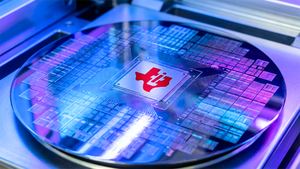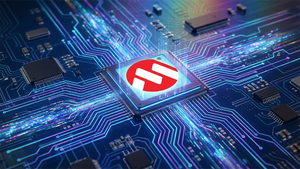— New 4th Gen AMD EPYC processors offer leadership performance in cloud native and technical computing —
— Microsoft Azure and Meta showcase support for new AMD EPYC CPUs at “Data Center and AI Technology Premiere” —
SANTA CLARA, Calif., June 13, 2023 (GLOBE NEWSWIRE) -- Today, at the “Data Center and AI Technology Premiere,” AMD (NASDAQ: AMD) announced the addition of two new, workload optimized processors to the 4th Gen EPYC™ CPU portfolio. By leveraging the new “Zen 4c” core architecture, the AMD EPYC 97X4 cloud native-optimized data center CPUs further extend the EPYC 9004 Series of processors to deliver the thread density and scale needed for leadership cloud native computing. Additionally, AMD announced the 4th Gen AMD EPYC processors with AMD 3D V-Cache™ technology, ideally suited for the most demanding technical computing workloads.
“In an era of workload optimized compute, our new CPUs is pushing the boundaries of what is possible in the data center, delivering new levels of performance, efficiency, and scalability,” said Forrest Norrod, executive vice president and general manager, Data Center Solutions Business Group, AMD. “We closely align our product roadmap to our customers’ unique environments and each offering in the 4th Gen AMD EPYC family of processors is tailored to deliver compelling and leadership performance in general purpose, cloud native or technical computing workloads.”
Advancing Cloud Native Computing
Cloud native workloads are a fast-growing class of applications designed with cloud architecture in mind and are developed, deployed and updated rapidly. The AMD EPYC 97X4 processors, with up to 128 cores, deliver up to 3.7x throughput performance for key cloud native workloads compared to Ampere1. Additionally, 4th Gen AMD EPYC processors, with “Zen 4c” cores, provide customers up to 2.7x better energy efficiency2 and support up to 3x more containers per server3 to drive cloud native applications at the greatest scale.
At the “Data Center and AI Technology Premiere,” AMD was joined by Meta who discussed how these processors are well suited for their mainstay applications such as Instagram, WhatsApp and more; how Meta is seeing impressive performance gains with 4th Gen AMD EPYC 97X4 processors compared to 3rd Gen AMD EPYC across various workloads, while offering substantial TCO improvements over as well, and how AMD and Meta optimized the EPYC CPUs for Meta’s power-efficiency and compute-density requirements.
| Model | Cores | Max Threads | Default TDP | Base Freq. (GHz) | Boost Freq.4 (GHz) | L3 Cache (MB) |
| 9754 | 128 | 256 | 360W | 2.25 | 3.10 | 256 |
| 9754S | 128 | 128 | 360W | 2.25 | 3.10 | 256 |
| 9734 | 112 | 224 | 320W | 2.2 | 3.0 | 256 |
Exceptional Technical Computing Performance
Technical computing enables faster design iterations and more robust simulations to help businesses design new and compelling products. 4th Gen AMD EPYC processors with AMD 3D V-Cache technology further extend the AMD EPYC 9004 Series of processors to deliver the world’s best x86 CPU for technical computing workloads5 such as computational fluid dynamics (CFD), finite element analysis (FEA), electronic design automation (EDA) and structural analysis. With up to 96 “Zen 4” cores and an industry leading 1GB+ of L3 cache, 4th Gen AMD EPYC processors with AMD 3D V-Cache can significantly speed up product development by delivering up to double the design jobs per day in Ansys® CFX®.6
On stage at the “Data Center and AI Technology Premiere,” Microsoft announced the general availability of Azure HBv4 and HX instances, powered by 4th Gen AMD EPYC processors with AMD 3D V-Cache. Optimized for the most demanding HPC applications, the newest instances deliver performance gains of up to 5x when compared to the previous generation HBv3 and scale to hundreds of thousands of CPU cores.
| Model | Cores | Max Threads | Default TDP (W) | Base Freq (GHz) | Boost Freq1 (GHz) | L3 Cache (MB) |
| 9684X | 96 | 192 | 400W | 2.55 | 3.70 | 1,152 |
| 9384X | 32 | 64 | 320W | 3.10 | 3.90 | 768 |
| 9184X | 16 | 32 | 320W | 3.55 | 4.20 | 768 |
The entire lineup of 4th Gen AMD EPYC processors is available today and are feature and socket compatible with existing AMD EPYC 9004 Series CPU-based systems, offering a seamless upgrade path. Watch the video announcement here and visit the landing page for 4th Gen AMD EPYC processors to learn more and read about what AMD customers have to say, here.
Supporting Resources
- Watch the “AMD Data Center and AI Technology Premiere” keynote video
- Learn more about 4th Gen AMD EPYC processors
- Follow AMD on Twitter
- Connect with AMD on LinkedIn
About AMD
For more than 50 years AMD has driven innovation in high-performance computing, graphics and visualization technologies. Billions of people, leading Fortune 500 businesses and cutting-edge scientific research institutions around the world rely on AMD technology daily to improve how they live, work and play. AMD employees are focused on building leadership high-performance and adaptive products that push the boundaries of what is possible. For more information about how AMD is enabling today and inspiring tomorrow, visit the AMD (NASDAQ: AMD) website, blog, LinkedIn and Twitter pages.
AMD, the AMD Arrow logo, EPYC, 3D V-Cache, and combinations thereof are trademarks of Advanced Micro Devices, Inc. Other names are for informational purposes only and may be trademarks of their respective owners.
1 Results may vary due to factors including system configurations, software versions and BIOS settings. As of 6/13/2023, see Cloud Native Workloads https://www.amd.com/system/files/documents/amd-epyc-9004-pb-cloud-native-workloads.pdf
2 Results may vary due to factors including system configurations, software versions and BIOS settings. As of 6/13/2023, see https://www.amd.com/system/files/documents/amd-epyc-9004-pb-spec-power.pdf.
3 SP5-149: Container density throughput based on sustaining ~25k e-commerce Java Ops/sec/container until exceeding SLA utilizing >90% of the total cores on composite server-side Java workload as measured by AMD as of 6/13/2023. Common container settings: allocated 40GB memory, similar disks & NICs. 2P server configurations: 2P EPYC 9754 128C/256T SMT ON, Memory: 1.5TB = 24 x 64 GB DDR5 4800, OS Ubuntu 22.04, NPS Setting: L3 as NUMA running 16 vCPUs vs. 2P Xeon Platinum 8490H 60C/120T HT ON, Memory: 2TB = 32 x 64 GB DDR5 4800, OS Ubuntu 22.04, NPS Setting: NPS 2 running 16 vCPUs vs. 2P Ampere Altra Max 128-30, Memory: 1TB =16 x 64GB DDR3200, OS Ubuntu 22.04, NPS Setting: NPS 1 running 25C. Results may vary due to factors including system configurations, software versions and BIOS settings.
4 EPYC-018: Max boost for AMD EPYC processors is the maximum frequency achievable by any single core on the processor under normal operating conditions for server systems.
5 SP5-165: The EPYC 9684X CPU is the world’s highest performance x86 server CPU for technical computing, comparison based on SPEC.org publications as of 6/13/2023 measuring the score, rating or jobs/day for each of SPECrate®2017_fp_base (SP5-009E), Altair AcuSolve (https://www.amd.com/en/processors/server-tech-docs/amd-epyc-9004x-pb-altair-acusolve.pdf), Ansys Fluent (https://www.amd.com/en/processors/server-tech-docs/amd-epyc-9004x-pb-ansys-fluent.pdf), OpenFOAM (https://www.amd.com/en/processors/server-tech-docs/amd-epyc-9004x-pb-openfoam.pdf), Ansys LS-Dyna (https://www.amd.com/en/processors/server-tech-docs/amd-epyc-9004x-pb-ansys-ls-dyna.pdf), and Altair Radioss (https://www.amd.com/en/processors/server-tech-docs/amd-epyc-9004x-pb-altair-radioss.pdf) application test case simulations average speedup on 2P servers running 96-core EPYC 9684X vs top 2P performance general-purpose 56-core Intel Xeon Platinum 8480+ or top-of-stack 60-core Xeon 8490H based server for technical computing performance leadership. “Technical Computing” or “Technical Computing Workloads” as defined by AMD can include: electronic design automation, computational fluid dynamics, finite element analysis, seismic tomography, weather forecasting, quantum mechanics, climate research, molecular modeling, or similar workloads. Results may vary based on factors including silicon version, hardware and software configuration and driver versions. SPEC®, SPECrate® and SPEC CPU® are registered trademarks of the Standard Performance Evaluation Corporation. See www.spec.org for more information.
6 https://www.amd.com/system/files/documents/amd-epyc-9004x-pb-ansys-cfx.pdf

Contact: Aaron Grabein AMD Communications (512) 602-8950 aaron.grabein@amd.com Suresh Bhaskaran AMD Investor Relations (408) 749-2845 Suresh.Bhaskaran@amd.com





